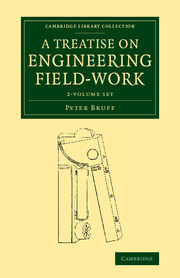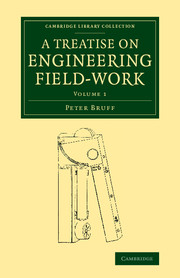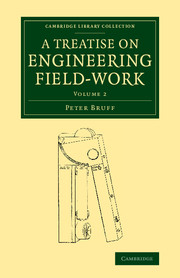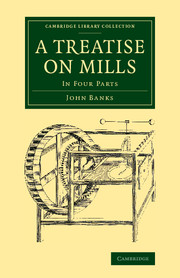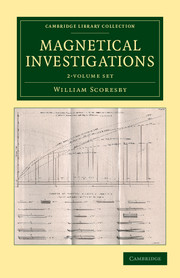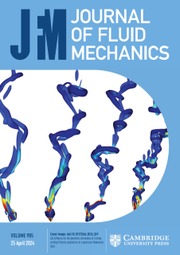A Treatise on Engineering Field-Work 2 Volume Set
In the 1840s, the civil engineer Peter Bruff (1812–1900) designed what was then the largest brick structure in Britain, the 1,000-foot-long Chappel Viaduct in Essex. He went on to become a railway entrepreneur and developer, and was responsible for the creation of the resort town Clacton-on-Sea, where he also designed many of the buildings. In this illustrated guide, first published in 1838 and here reissued in the revised and expanded two-volume second edition of 1840–2, he discusses the theory and practice of surveying (calculating the accurate position of points in the landscape) and levelling (calculating the accurate height of points). Volume 1 covers surveying by measuring chain and by the taking of angular measurements, and gives example surveys for land boundaries, parishes and railway lines. Volume 2 is devoted to levelling, examining the instruments and methods to be used to calculate 'sections', or elevation profiles.
Product details
August 2014Multiple copy pack
9781108071550
340 pages
210 × 140 × 20 mm
0.46kg
57 b/w illus. 3 maps
Temporarily unavailable - available from TBC
Table of Contents
- Volume 1:
- 1. Explication of the term 'surveying'
- 2. On surveying with the chain
- 3. General directions for conducting a survey
- 4. Examples in surveying
- 5. Surveying with angular instruments
- 6. On protracting angles. Volume 2:
- 1. Theory of levelling, gravity and the plumb-line
- 2. Levelling
- 3. Directions for taking trial sections
- 4. Ascending and descending levels
- 5. Levelling for cross sections with the plotting on plan and main section
- 6. Advice on levelling instruments
- Tables of curvature and refraction
- Tables of slopes and inclines.

